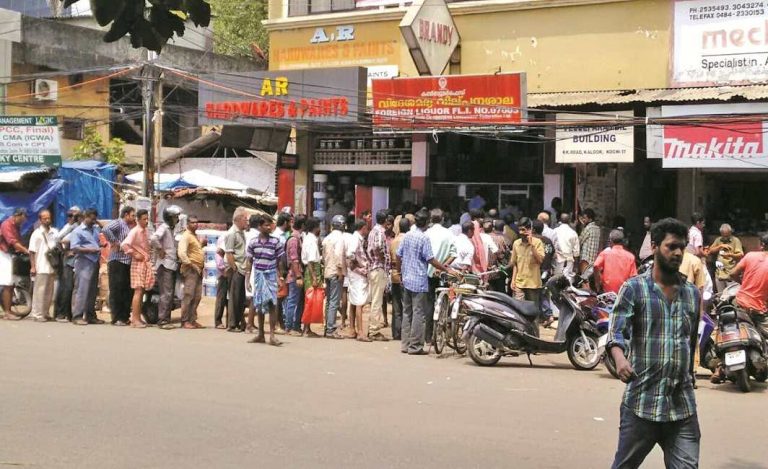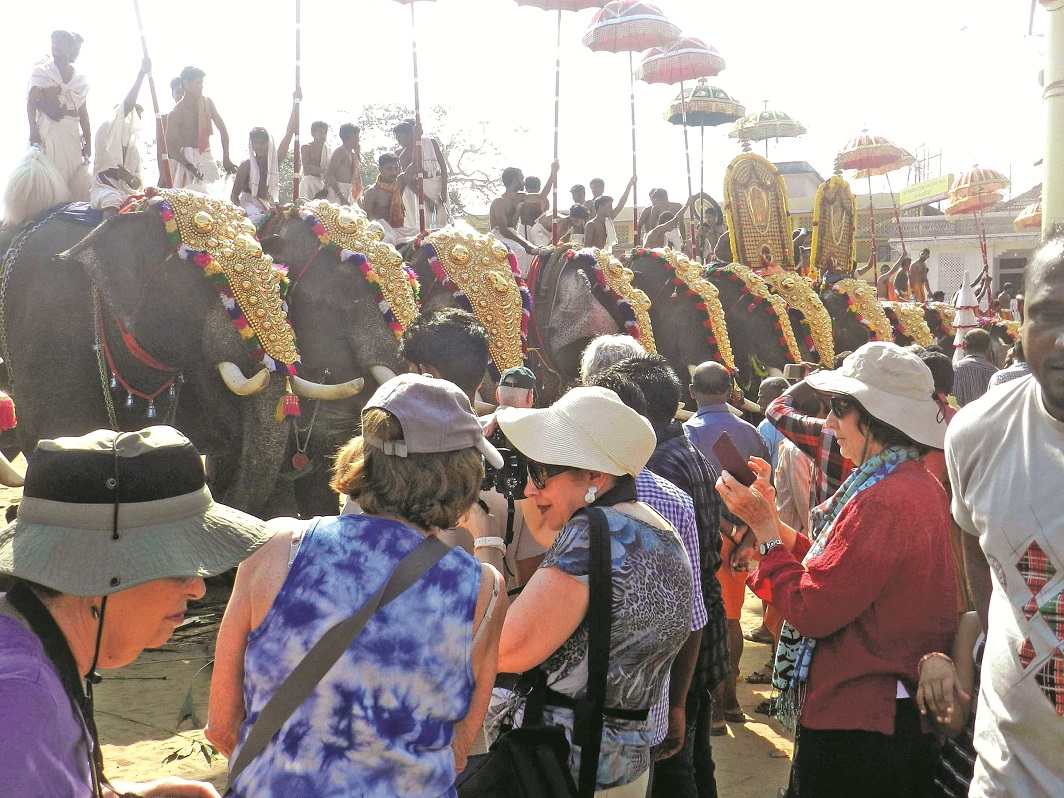
The SC order banning booze outlets along highways has hit the state hard as it has a high population density and little land, igniting fears of a parallel illicit drugs industry
~By Naveen Nair in Thiruvananthapuram
If there is one state that is taking a real hit from the Supreme Court’s order to dismantle bars and retail liquor outlets along national highways, it is Kerala. While its economy will be crippled like those of others, what makes Kerala different is that it is a sliver of a state with little land. Therefore, shifting bars and retail liquor outlets 500 m away from highways is difficult and their closure seems imminent. There are also fears that it will give rise to a parallel industry of illicit liquor and drugs.
Kerala’s Finance Minister Thomas Isaac, while ruing the loss of an important revenue generator, told India Legal: “In Kerala, you just do not have the space to follow the 500 m restriction. This means that you either move these enterprises to the heart of habitation, which you cannot, or shut all of them. The net result will be more dangerous as people will shift to illicit liquor, drugs and other ‘substances’.”
Isaac has a point as drugs and illicit liquor are fast gaining ground in Kerala. The state has already filed an affidavit in the Supreme Court asking for a three-month relaxation in the liquor ban as it says that 3.4 lakh litres of spurious alcohol were caught from various places. These range from illicit liquor to spirit, arrack, toddy and wash (finished product of fermentation). The spike in these substances can be seen in the number of cases registered in the state under the Narcotic Drugs and Psychotropic Substances Act (NDPS) since 2013- 14. This is when the new liquor policy of the erstwhile UDF government came into force. Drug cases in Kerala tripled from 1,014 in 2014-15 to 3,303 in 2016-17 (February).
The Kerala government’s affidavit says: “…the State of Kerala stands to lose hundreds of crores in revenue and thereby not being in a position to meet its welfare obligations to its people through the multiple schemes and measures currently being implemented. The impact of the directions issued in the judgment/order of 15.12.2016 would not only be on the Government revenue directly earned from liquor outlets and hotels, but also on the tourism industry and the revenues generated from it. Tourism being one of the largest commercial activities in Kerala, the effect on employment would be severe, and the overall economic situation in Kerala would certainly deteriorate”.
 No of retail shops selling alcohol in Kerala: 306 (270 by KSBC, 36 by Consumer Federation)
No of retail shops selling alcohol in Kerala: 306 (270 by KSBC, 36 by Consumer Federation)- Shops shut down: 143 out of 306
- Average revenue to state exchequer from one retail shop: Rs 3.06 crore monthly
- Net revenue loss to state due to closing of liquor outlets: Rs 328 crore per month
- Income loss from shutting down of 577 beer and wine parlours: Rs 64 crore
- The total revenue contribution of KSBC during 2016-17: Rs 10,348 crore
The previous UDF government had imposed partial prohibition which allowed only five star bars to function and closed down retail liquor outlets in a phased manner from 2013-14. The ill-effects of this policy are now coming to light and add weight to the government’s view that the things will only get worse after the SC’s order. In the last six months, more than a lakh kilograms of narcotic substances were caught from Kochi alone. Enforcement agencies say that it is not Goa or Karnataka but Kochi that is fast becoming the drug capital of the South. With limited or no alcohol available, drugs will be the next high sought by people here.
The state government says that with the existing liquor policy promulgated since 2014 already choking the economy, the new Supreme Court restrictions will suffocate it further and almost kill its tourism sector. The numbers say it all. Kerala has a total of 306 retail shops selling alcohol, out of which 270 are run by the Kerala State Beverages Corporation (KSBC) and the rest by the Consumer Federation. Post the Court’s orders, 143 have been shut down, while 163 are still functioning.
The average revenue to the state exchequer from one retail shop is Rs 3.06 crore per month. Thus, the total revenue loss due to the closure of 143 retail shops is Rs 437 crore per month. Even if the state was to shift at least 25 percent of the sale of the closed shops to the functioning ones, the net revenue loss would still be as high as Rs 328 crore per month. The state had also been running 815 beer and wine parlours, out of which 577 have been closed now, resulting in an income loss of Rs 64 crore. The total income loss comes to a whopping Rs 4,700 crore yearly.
Isaac said: “A loss of this scale cannot be compensated with some other source. The government will have to curtail expenditure substantially and it will affect our financial plans very badly.’’ He has a point. The total revenue contribution of KSBC to the state exchequer during 2016-17 was Rs 10,348 crore. So a loss of around Rs 4,000 crore means a revenue drop of 45 percent, which the state may not be able to withstand. Also, KSBC used to contribute about 22 percent of the total tax revenue of the state. But in 2017-18, it would be able to contribute only 12 percent.

Tourism has also taken a severe hit ever since the ban. Kerala, till the beginning of this season, was a hot destination for “Conference Tourism” which has attracted big corporate clients from across world in the last five years. But with even the liquor outlets of the state’s five star hotels having to close down, there have been cancellations across major hotels.
Travel operators say that most of them are opting for Sri Lanka as a destination now. “Most of our clients do not want to travel to Kovalam or Varkala for their onsite meeting and conferences after the ban. Existing reservations are getting cancelled. From next year, we are not looking at Kerala as a destination,’’ said Jijo Madhappavallil, who runs London-based Ashin City Tours, one of Kerala’s top tour operators.
Though the Supreme Court later added a modification, this too has come as a headache for Kerala. It said: “In the case of areas comprised in local bodies with a population of 20,000 people or less, the distance of 500 metres shall stand reduced to 220 metres.” Due to its high population density, there is no panchayat or local body in Kerala with a population less than 20,000. The state has now asked the apex court to relax this to 30,000 to reduce its burden.
Meanwhile, the state government has reiterated that unlike other states such as Punjab, Rajasthan and Maharashtra, it will not take steps to circumvent the order. G Sudhakaran, minister for Excise & PWD Works, said: “Some states have de-notified highways as state roads to get around this order. But we do not want to do that as it only hurts the aspirations of the people who want development. But you just cannot break the backbone of a state with an order like this. The Supreme Court needs to realize that what applies in one part of India does not apply elsewhere. We can only hope.’’

